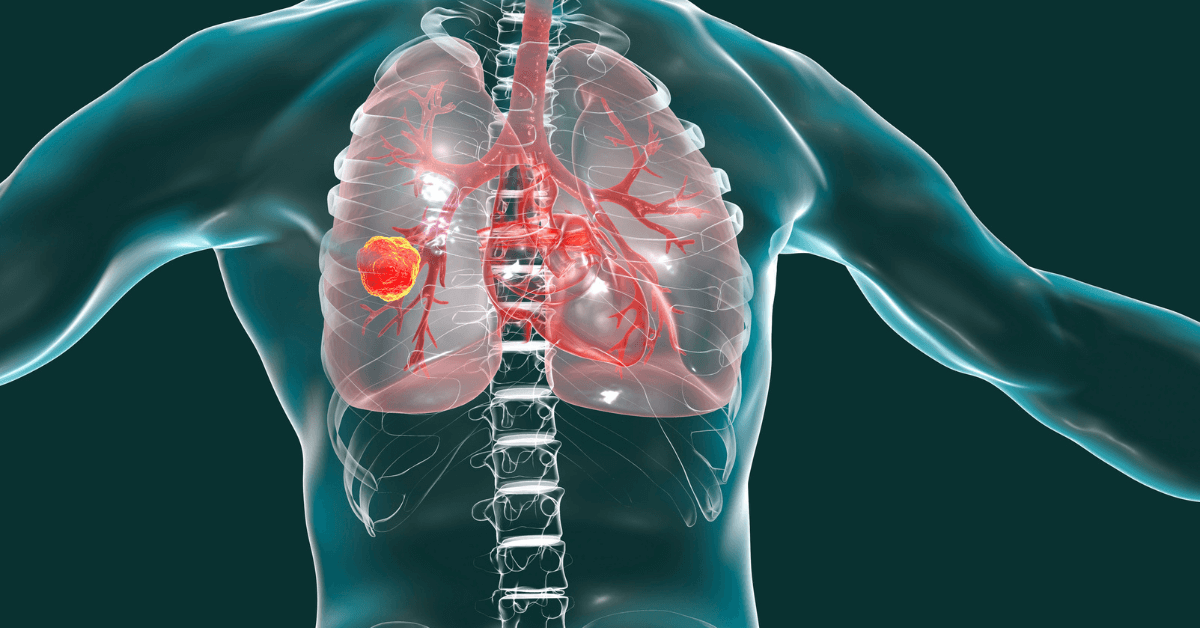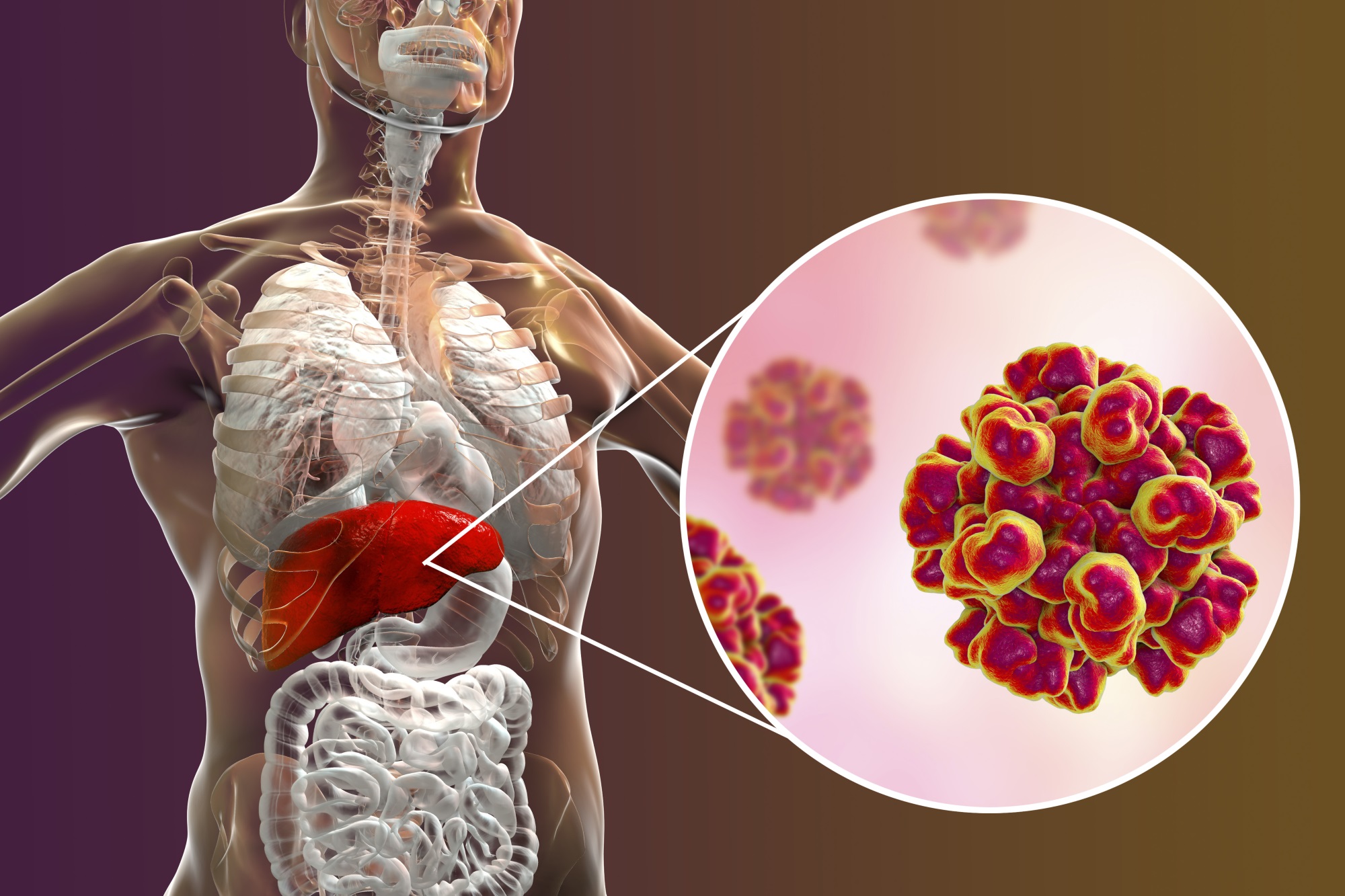Pleurisy, Pleuritis, Chest pain, Pleuritic pain, Shortness of breath, Pleura, Lung disorder.
Root Cause of Disease
Most cases are the result of a viral infection (such as the flu) or a bacterial infection (such as pneumonia). In rarer cases, pleurisy can be caused by conditions such as a blood clot blocking the flow of blood into the lungs (pulmonary embolism) or lung cancer. While there are many causes of pleurisy, viral infection is the most common cause. Infections caused by viruses, such as the influenza virus, can result in infections of the lungs and, ultimately, pleurisy. Other viruses that may lead to development of pleurisy include adenovirus, coxsackieviruses, cytomegalovirus, Epstein-Barr virus, parainfluenza virus, and respiratory syncytial virus. In addition to viral infections, other common origins of pleurisy include bacterial infections, inflammatory conditions, pulmonary conditions, cardiac conditions, and medication side effects.
Symptoms
The main symptom of pleurisy is chest pain (pleuritic pain) that feels sharp, stabbing or knife-like, coming from one specific place. It’s worse when you breathe deeply or cough and sometimes spread to your shoulder or back. You’ll probably find yourself breathing carefully to avoid the pain.
You might also have:
- Shortness of breath
- Cough
- Fever
- Extreme tiredness (fatigue)
- Severe, fleeting, sharp pain in your chest, often on one side only, when breathing deeply, coughing, moving, sneezing, or even talking.
- When pleurisy occurs in certain locations of the lungs, the pain can be felt in other parts of the body such as the neck, shoulder, or abdomen.
- Rapid, shallow breathing in response to the pain.
Causes
Most cases are the result of a viral infection (such as the flu) or a bacterial infection (such as pneumonia). It can also be caused by a virus such as the flu or by a fungus. Infections can cause inflammation in your pleurae, which gives you chest pain.
You can also get pleurisy from:
- Autoimmune diseases such as lupus, rheumatoid arthritis or familial Mediterranean fever (FMF).
- Lung or pleural disease such as lung cancer, mesothelioma, tuberculosis or asbestosis.
- Chest surgery or trauma.
- A blood clot in your lung (pulmonary embolism).
- Inflammatory bowel disease.
- Sickle cell disease.
- Certain medications, including hydralazine, isoniazid and procainamide.
- Pulmonary embolism.
- Tuberculosis.
- Rib fracture or trauma.
- Certain inherited diseases, such as sickle cell disease.
- Certain medications and recreational drugs.
Home remedies to treat Pleurisy
Remedy – 1: Ginger tea
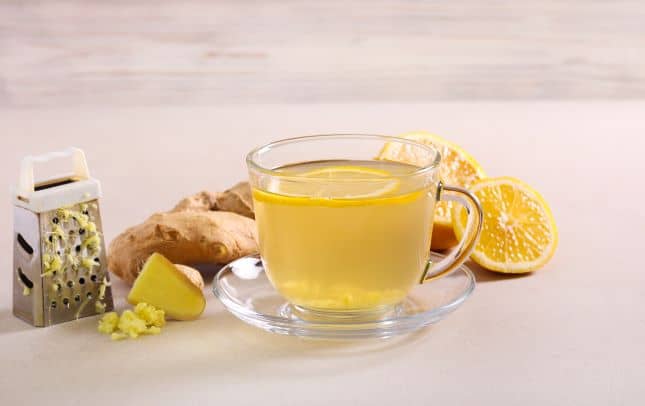
Ginger, another common condiment, can help you deal with pleurisy. Ginger has strong anti-inflammatory effects which can inhibit the release of prostaglandin. Ginger might, therefore, act like nonsteroidal anti-inflammatory drugs (NSAIDs) which ease pain and inflammation. Ginger can also act against pathogens which could attack your respiratory tract and cause chest infections. Ginger tea has anti-inflammatory and antiviral properties that remove toxins from the respiratory tract. Ginger is also famous for its function of improving immunity, digestion, treating asthma, relieving pain, preventing cardiovascular disease. Besides this herbal tea also has minerals such as: potassium, magnesium, zinc and beta carotene and vitamin C. Some studies have shown that ginger extract can kill lung cancer cells.
Procedure:
- Thinly slice your fresh ginger.
- In a saucepan, combine the ginger with fresh water.
- Bring the mixture to a boil over high heat.
- Simmer for five minutes. Pour the tea through a fine sieve to catch all of the ginger.
Remedy – 2: Turmeric milk
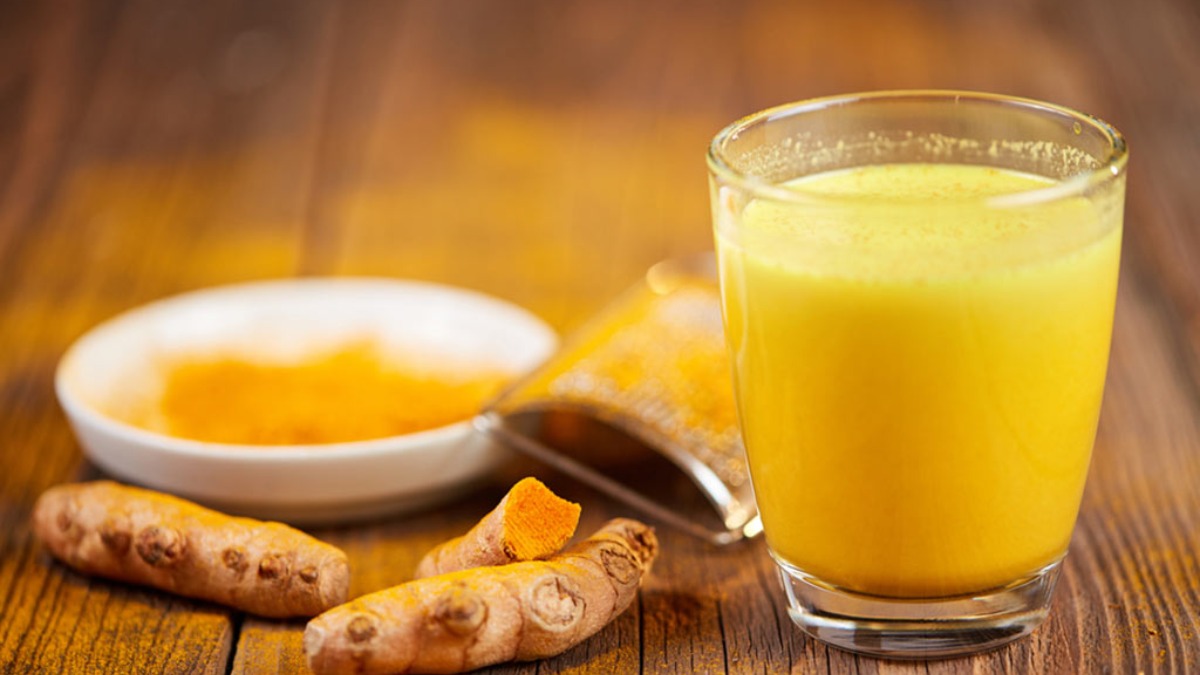
Turmeric is a spice well known for its powerful antibacterial and anti-inflammatory effects. Additionally, it functions as an analgesic and may lessen pleuritic chest pain. In fact, turmeric can lower prostaglandin E, just like honey. It can combat bacteria that cause lung infections. Also works as an analgesic and may help ease chest pain caused by pleurisy. It can act against bacteria which can lead to lung infections.
Procedure:
- Heat 1 cup of milk in a saucepan on a low to medium flame.
- Simmer the milk for 2 to 3 minutes or until it boils on low to medium flame. Once the milk begins to boil, then switch off the gas.
- Pour the hot milk in a glass
- Add ¼ teaspoon of turmeric powder. Stir and mix very well. Serve Turmeric milk hot or warm. It is best to drink the milk hot or warm.
Other Remedies
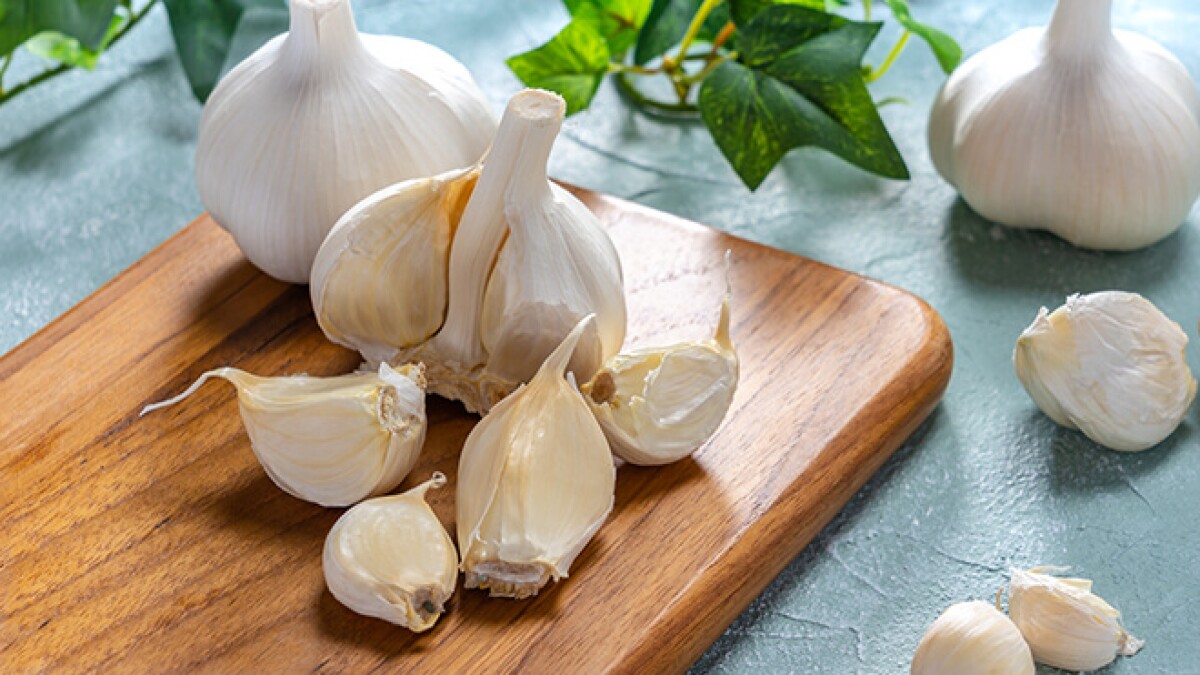
Garlic has traditionally been used to treat pleurisy. Organosulfur compounds present in this common condiment give it powerful anti-inflammatory powers and help it support your immune system. Traditional healers recommend having a clove of garlic on an empty stomach along with some water every day to tackle pleurisy.
Product link: Garlic
Prevention
Some preventive measures for pleurisy include:
- Not smoking.
- Treating underlying conditions, such as autoimmune or lung diseases.
- Washing your hands to help prevent bacterial or viral infection.
- Limit sugar, fat and alcohol, and maintain a healthy weight.
- Eat a healthy, balanced diet with plenty of vegetables, fruit and lean protein.
- Get plenty of rest. Find the position that causes you the least discomfort when you rest.

